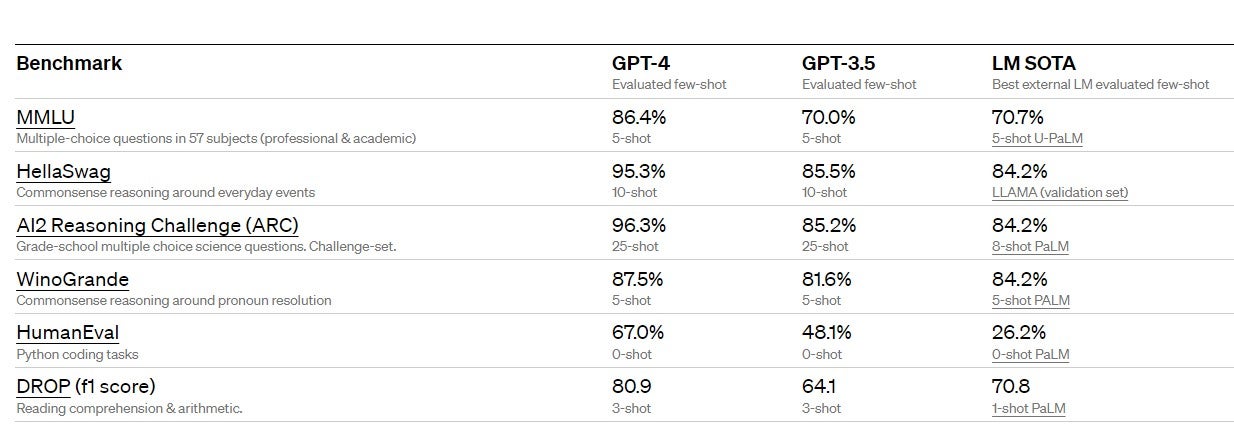OpenAI has just released GPT-4, the latest iteration of the artificial intelligence language model that powers ChatGPT.
OpenAI founder Sam Altman has called GPT-4 the company’s “most capable and aligned model yet”. It can now understand image and text inputs, ace complex exams and even build a website from scratch with only basic instructions.
But how does GPT-4 differ from ChatGPT-3.5 and other AI tools, and is it really that much more intelligent? We take a closer look.
GPT-4: A New Look Lanugage Model
GPT-4 is a newer, more powerful version of GPT-3.5, and can take inputs of up to 20,000 words at once.
Impressively, in a demo that took place on Tuesday, GPT-4 was able to explain was able to build a website based on a basic hand-drawn sketch provided by a human. It also proved capable of answering complex tax-related questions, but “hallucinations” – where the model simply serves a false response to a query because it doesn't know the answer – admittedly still occur.
The multimodal AI model is not available to the general public just yet, although it's currently being trialed by a corporation called Be My Eyes, a Danish mobile app that provides support for visually impaired people.
GPT-4 is also available today for ChatGPT Plus users, while some of OpenAI’s commercial partners already have GPT-4-powered features, such as Duolingo’s “Explain my Answer” (pictured below) and “Roleplay” tools now available to paid subscribers of the service.

How does ChatGPT-4 Differ to ChatGPT-3.5?
OpenAI says that, all things considered, “GPT-4 is more reliable, creative, and able to handle much more nuanced instructions than GPT-3.5.”
According to the artificial intelligence lab, GPT-4 “passed a simulated bar exam with a score around the top 10% of test takers”, whereas GPT-3.5 scored within the bottom 10% of test takers.
GPT-4 is also significantly better at enforcing its own content moderation policy than other OpenAI models, responding to disallowed content requests 82% less frequently than ChatGPT-3.5.
As you can see from the test results below (image credit: OpenAI), GPT-4 outperforms GPT-3.5 in a number of key tests OpenAI run on their language models:

Using AI in the Workplace
The launch of GPT-4 will be welcomed by the increasingly large list of businesses already using AI in the workplace, most notably ChatGPT.
Though ChatGPT can’t manage projects or conduct a meeting just yet, new business-related use cases are popping up all the time – and in all sorts of industries.
“I use ChatGPT to generate Excel spreadsheet formulas,” senior SEO executive Amy told Tech.co. “When I’ve tried to find Excel formulas on Google, often, the results are not specific enough to what I’m trying to accomplish.”
“I can ask ChatGPT for specifics and explain exactly what I’m looking for in a more detailed way – I can’t do that with Google” she added.
GPT-3.5 is already helping employees all over the world claw back valuable time and energy, and it looks like GPT-4 will be even better equipped to provide cogent responses to inputs for businesses once it becomes generally available.




